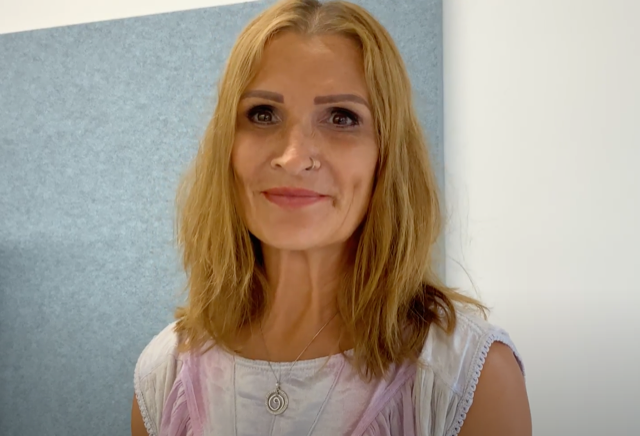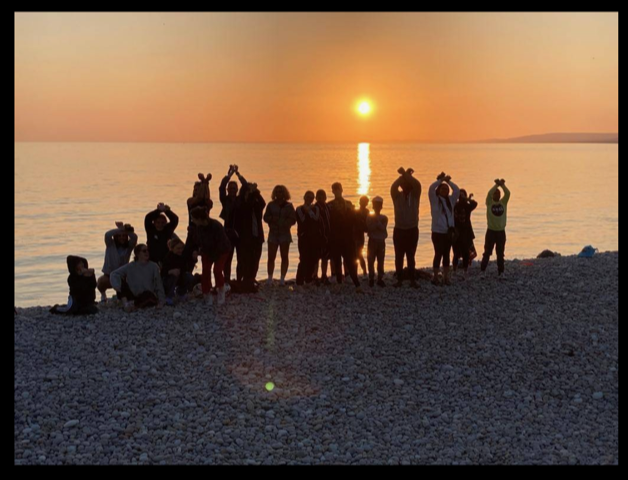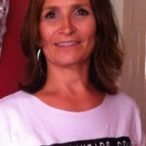This summer a historic miscarriage of justice case hit the headlines. Andrew Malkinson’s conviction for rape was overturned by the Court of Appeal. He had wrongly spent more than 17 years in prison. The Malkinson case exposed major flaws in the high-stakes process for innocent people attempting to navigate the appeals system. Behind appeals are families, often hidden, but also impacted. A support network, Bound By Injustice has been established by the law practice and charity APPEAL for Its clients and their loved ones. Sue Beere is an APPEAL staff member and survivor advocate for the network.
 When my husband, Jon, was wrongfully convicted, I had no idea where to turn for help. There is very little out there for families of prisoners. What did exist focused on the ‘guilty’.
When my husband, Jon, was wrongfully convicted, I had no idea where to turn for help. There is very little out there for families of prisoners. What did exist focused on the ‘guilty’.
We spent several years treading water, surviving thanks to loving, loyal family and friends. We dealt with stigma and judgement– from the ‘no smoke without fire’ haters as we called them. I’m not sure they know how damaging their comments and actions were.
Isolation and anger was always there, a sense of shame.
In 2016, Jon and his co-defendants, AKA The Freshwater Five, wrote to a legal charity –APPEAL. The Freshwater Five were imprisoned in 2011 on serious drug charges and have always maintained their innocence. 12 years on they have done their time; still they’re battling to clear their names.
When APPEAL took on the case, everything changed – it sounds cheesy, but it did. Finally, other people looked at the evidence and saw my husband Jon and the others were innocent, wrongfully in prison. APPEAL was clearly committed to getting the conviction overturned. APPEAL is the only law practice providing a holistic, wrap-around approach to representation of the wrongfully convicted, and this made all the difference.
I’ll never forget the first time I took our two older children, Elle and Maisie to a Bound By Injustice get-together for loved ones fighting a conviction. No stigma, shame, or judgement. A safe space to be with others who ‘got it’. Victims of the ripple effect caused by a wrongful conviction: mothers; wives; fathers; siblings; aunts; grandchildren and friends. All have experienced the empty chair at birthdays, weddings and funerals, enduring not only absence through a loved one’s imprisonment but also the grueling battle through the appeals system.
Fast forward four years – I now work as a survivor advocate at APPEAL with my colleague, Cath Snow. Together, we support the Bound by Injustice community of 100 members pastorally, with work ranging from practical help with prison visits and liaising with schools, to signposting to mental health support.
Part of our role is to plan and facilitate Bound By Injustice events. Everything we do at these events is in response to what families tell us they need.
This month we held a conference in London, with an international line-up of speakers. The Law Commission attended as they’re carrying out a review of the appeals process – an urgent need highlighted by not only Andrew Malkinson’s case, but also my husband’s.
The Law Commission meeting felt a big deal. That they, an independent legal body, were consulting with our members as part of an official inquiry into the appeals process means so much. It sends a powerful message to families of wrongfully convicted people navigating an appeal that their experience was being taken seriously. Our members were asked for their views of the system – what works and what doesn’t. This is something that would have been unimaginable when Jon, myself and our family started down this route.
The biggest boost at the conference – and dose of reality – came from Andrew Malkinson himself. He’s given us all hope we will get our day in the Court of Appeal too. What also came over clearly is that even after proving a miscarriage of justice, the wrongfully convicted still need support. Life doesn’t suddenly become perfect when your innocence is finally recognised.
Supporting the loved ones of the wrongfully convicted through the highs and lows of the appeals process is vital; radical reform of the system itself is essential.
At Bound By Injustice we offer strength in numbers: we listen, we laugh, we cry.
Most importantly, we aren’t alone anymore.
The silence is broken.
As one twelve-year-old said, ‘We take away that it is ok to talk about our experiences.’ I’ll finish with a poem our daughter Elle wrote in a creative workshop (led by Lady Unchained). Elle knows.
‘I’ve been dying to tell you’
I’ve been dying to tell you about the impact on families.
The way that everyone suffers alongside the prisoner.
The way that it’s a sentence served by all.
The way that a failure within the justice system can cause childhood trauma.
The way that the stigma impacts us more than you could ever imagine.
The smile that we put on every day.
The positive tone that you feel you need to use when talking on the phone.
The guilt that you feel when telling your loved one about your day and the autonomy and freedom that you are lucky enough to experience.
The things that we experience don’t have to be this way.
The thousands of people that wrongful conviction affect need not experience this trauma.
The Adverse Childhood Experiences need not occur!
I’ve been dying to tell you about the corruption which puts thousands of people behind bars.
Follow Sue on Twitter (@SueyBeere). More on Bound By In Justice here.







